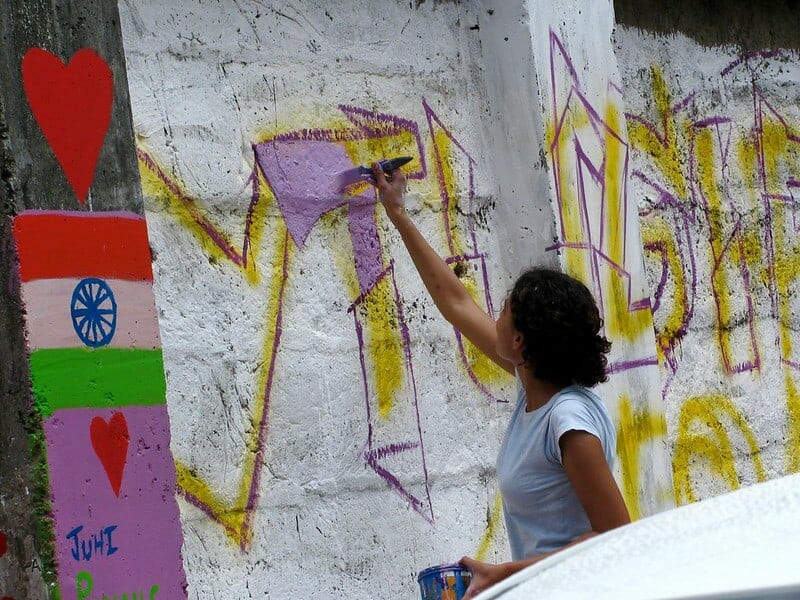In 1997, Stephen Webber, a professor of music production and engineering at the Berklee College of Music, proposed teaching a course in turntablism. What DJs were doing with turntables had opened his eyes to a new musical frontier. But when he proposed teaching the course, Berklee denied. He tried two more times but he was denied on both occasions. Webber explained to the college that turntablism and hip hop was a crucial part of culture. “If we plan to be relevant in academia, we have to address it [hip hop] and learn about it ourselves,” he tried saying.
In 2003, Berklee gave in.
Since then, the links between hip hop and academia have become less tenuous. Hip hop studies have been a feature of US universities since the beginning of the 21st century, but such courses can be uncommon outside of North America.
8,500 miles away and a decade and a half later, two Mumbai University professors, Sanjay Ranade and Yatindra Ingle, started thinking about introducing a hip hop course at Mumbai University. Simply called the Certificate Course in Hip Hop Studies, the programme faced initial challenges of approvals from the University and was later delayed due to the COVID-19 pandemic. It is finally taking off at Mumbai’s Usha Pravin Gandhi college. Currently ongoing, the 60-hour course covers topics like rapping, lyricism, graffiti, hip hop and society, among others, and is taught by artists like Enkore, AmB, D-cypher, Manmeet Kaur aka MC Kaur, among others.
Read more: Studies must go on. Internet or no internet
On Beat
Yatindra, the coordinator of the course, has fielded many questions about why teach hip hop. “Hip hop is a movement with a deep history and culture,” he says. “We don’t teach students how to perform hip hop, we teach them what is hip hop. Think of it as an aspect of culture studies.”
“Students are taught the origin of hip hop, how it has developed, the factors affecting it, and how it may evolve,” Sameer Inamdar, rapper and another faculty member, says. To make the distinction between teaching the art form or about it, he uses the example of literature. Just as studying literature is not necessarily an exercise in writing, the hip hop course also is not about learning how to rap or practice graffiti, he says. “If you want to do hip-hop go to the streets. But If you want to study hip hop, come to class,” he adds.
The course also discusses the comprehensiveness of hip hop. Often considered synonymous with rap music, the faculty members want students to learn that hip hop is much more. The course’s concentration on history explores hip hop as a movement. It takes students to Bronx and Brooklyn in the United States where the art form originated. But it still maintains a focus on India.
India has its own history of hip hop, Yatindra says. It’s not the movie Gully Boy that brought hip hop to India. Rappers like Bohemia and Baba Sehgal had popularised hip hop in the 90s. “Desi hip hop, a combination of what people learnt from the US and how they integrated it with their own culture, has been on the streets of Mumbai and Delhi for three decades.”

Read more: ‘Mumbai taught me to dream big and be relentless at it’
More than rhyme
Hip hop’s history cannot be divorced from its roots in identity politics and activism. The course, Yatindra says, integrates these nuances by, say, teaching the etiquette of a battle rap. “We teach students what its discipline is and how not to cross your limits.” Some other topics include women of hip hop, evolution of graffiti, and raising social awareness through hip-hop. My personal favourite, Yatindra says, is how to use a “spray can as a weapon”. But the question of legality around graffiti looms large over the class. “When governments can use it for beautification, how can it be illegal,” Yatindra asks. “But we encourage students to pursue permissions first”.
320 students applied to the course, from which 15 were selected on a first-come first-served basis. These 15 students are a mix of artists and researchers who have previously engaged with the elements of hip hop in one form or another. One such student is Mahima Makwana, a dancer, who joined the course to learn the foundation of hip hop and become “more aware”.
Rudolph Poojary joins the online lectures from Dubai. A logistics professional, Rudolph moonlights as a rapper. He started rapping three years ago but didn’t think he had a good enough foundation in the history and culture of the art form. When he heard about the course, especially its faculty members, he decided to join. “These are the guys who laid the bricks of desi hip hop,” he says of the faculty members, “and have not just read a few books”.
The faculty members and the hands-on practical nature of the course has also impressed researchers like Akshara Dafre who believes that there hasn’t been enough research on hip hop in India. “When I was first introduced to hip-hop, I thought it was all bout rap music. I didn’t know it also had site elements to it like breaking or graffiti. I was very happy to learn that the course takes all of these into account.” A recent postgraduate whose dissertation was on Mumbai’s rap scene, Akshara is currently pursuing the course and hopes to pursue a doctorate in hip hop studies.
In the few weeks that the course has been running, it has offered something to each member of its diverse class: context to the performers and a community for the researchers. “I’ve always relied on secondary information,” Akshara says. “Interacting with artists has shown me what books could not have.”
Also read: